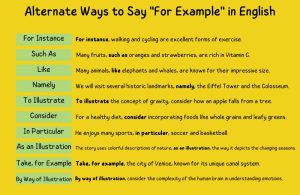No matter whether you are in family programs, office meetings, shopping malls, bus stops, or in schools, you undoubtedly experience situations when you need to seek permission from others to do something.
Even if you need to get into the classroom, take something from your colleague’s desk, or use your sister or brother’s laptop, you must ask for permission. If you need permission for three days of leave and are too direct and rude to your boss about this, you may not get the permission. Thus, politeness is the key when you ask for permission from someone. In this post, I will discuss how you can politely ask for permission. Let’s move on.
“May I…?” “Can I…?” and “Could I…?” are three of the most common expressions in English used to ask for permission. Regardless of the situation: informal, semi-formal, or formal, you are expected to be polite in your choice of words, voice tone, and body language whenever you ask for permission.
Are you looking for a book or a guide to help you learn and improve your English? You may try English Made Easy Volume One: A New ESL Approach: Learning English Through Pictures (Amazon Link).
Table of Contents
- Different Expressions of Asking for Permission
- May I…?
- Could I…?
- Can I…?
- Do You Mind If I…?
- Would You Mind If I…?
- Would It Be Alright If I…?
- Do You Think I Can…?
- Is That OK if I…?
- If You Don’t Mind, I’d Like to…
- I Wonder If I Could…
- Could I Possibly…?
- Is It Possible for Me to…?
- Would It Be Possible for Me to…?
- How to Use Your Voice Tone & Body Language While Asking for Permission
- A Sample Conversation on Asking for Permission in English
- In Conclusion
- 10 Frequently Asked Questions Related to Asking for Permission Politely in English
Different Expressions of Asking for Permission
| Expressions of Asking for Permission | Example Sentences |
| May I…? | May I go with you? |
| Could I…? | Could I call you later? |
| Can I…? | Can I have this? |
| Do you mind if I…? | Do you mind if I buy you some food? |
| Would you mind if I…? | Would you mind if I sent you the file later? |
| Would it be alright if I…? | Would it be alright if I played with you? |
| Do you think I can…? | Do you think I can do the rest of the task? |
| Is that ok if I…? | Is that ok if I cook tonight? |
| If you don’t mind, I would like to…. | If you don’t mind, I would like to do it for you. |
| I wonder if I could…. | I wonder if I could sit right beside you. |
| Could I possibly…? | Could I possibly go back to my desk now? |
| Is it possible for me to…? | Is it possible for me to share the screen with you? |
| Would it be possible for me to…? | Would it be possible for me to call you tonight? |
The table shows different expressions of asking for permission in different contexts: formal, informal, and semi-formal. To get to know more about the expressions with examples, please keep reading the post till the end.
May I…?
“May I…?” is the most common English polite expression used to ask for permission. Though this expression is used in formal contexts, you can also use it in informal and semi-formal situations. The expression “May I…?” is naturally polite, but if you put a “please” at the end, it will sound even more polite. Let’s look at some example sentences.
| Structure: May I + verb (Base/Present form) + extension? Examples: May I come in, please? May I call you at night, please? May I help you? |
Could I…?
“Could I…?” also serve the same purpose as “May I…?” does. It is also a formal expression of asking for permission.
Examples are given below.
| Structure: Could I + verb (Base/Present form) + extension? Examples: Could I go back to my desk now? Could I ask another question, please? Could I have another piece of meat? |
Can I…?
“Can I…?” is completely an informal expression used to ask for permission. You can use this to ask for permission from your close friends or those you maintain close relationships with.
Check the following examples.
| Structure: Can I + verb (Base/Present form) + extension? Examples: Can I return the books tomorrow? Can I sit here, please? Can I call you anytime? |
Do You Mind If I…?
“Do you mind if I…?” is a very polite expression to ask for permission. Using this expression shows that you are concerned about the problem (if any) of the person you are seeking approval from.
The table shows the structure with some examples.
| Structure: Do you mind if I + verb (Base/Present form) + extension? Examples: Do you mind if I borrow some books from you? Do you mind if I call you after the meeting? Do you mind if I drive your car? |
Would You Mind If I…?
“Would you mind if I…?” is a polite expression commonly used to ask for permission in formal situations. Remember! The structure of “Would you mind if I…?” differs from “Do you mind if I…?”
The table shows the structure and examples that will surely help you understand using this expression.
| Structure: Would you mind if I + verb (Past form) + extension? Examples: Would you mind if I bought a drink for you? Would you mind if I joined you? Would you mind if I sent you the files later? Note: To learn more about the sentences with “If” and “Would,” you can read the article on Conditional Sentences/If Clauses. |
Would It Be Alright If I…?
A very polite expression you can use while asking for permission is, “Would it be alright if I…?” The expression shows that you are concerned whether the person you seek permission from has any problem permitting you. It is commonly used in formal situations.
Let’s have some examples.
| Structure: Would it be alright if I + verb (Past form) + extension? Examples: Would it be alright if I paid the bill? Would it be alright if I came to see you? Would it be alright if I cooked the meat? |
Do You Think I Can…?
To ask for permission, we can use the polite expression “Do you think I can…?” Though this expression sounds formal, you can also use it in informal and semi-formal situations. This expression clearly shows that you are very concerned about the consent of the person you seek permission from.
Examples are given below.
| Structure: Do you think I can + verb (Present form) + extension? Examples: Do you think I can borrow your laptop for a few days? Do you think I can have this? Do you think I can do it by myself? |
Is That OK if I…?
The use of “Is that ok if I…? is semantically similar to “Would it be alright if I…? But still, we can consider the latter more formal than the first one.
The following table shows the structure and examples of this expression.
| Structure: Is that ok if I + verb (Present form) + extension? Examples: Is that ok if I come to your place this afternoon? Is that ok if I buy some food for you? Is that ok if I send you the parcel two days later? |
If You Don’t Mind, I’d Like to…
“If you don’t mind, I would like to….” is used in our everyday English. You can use this expression in any formal situation. Remember! This expression is not in question format as the others.
Let’s look at some example sentences.
| Structure: If you don’t mind, I’d like to + verb (Present form) + extension. Examples: If you don’t mind, I’d like to go home now. If you don’t mind, I’d like to help you with the problems. If you don’t mind, I’d like to put your name on the new team members’ list. |
I Wonder If I Could…
One of the polite ways of asking for permission is using the expression “I wonder if I could…? This is a very formal expression.
The following table shows the structure and examples that will help you better understand using this expression.
| Structure: I wonder if I could + verb (Present form) + extension. Examples: I wonder if I could make a pair with you in the dance competition. I wonder if I could have some more time to do it. I wonder if I could give you the money you need for your tuition fees. |
Could I Possibly…?
Though this expression is not that common, you can use it too. This particular expression also sounds polite and can be a good way to seek permission.
See some examples.
| Structure: Could I possibly + verb (Present form) + extension? Examples: Could I possibly call you at night? Could I possibly send you the e-mail later? Could I possibly find you a good flat? |
Is It Possible for Me to…?
“Is it possible for me to…?” is an indirect and polite way to ask for permission. Though it sounds like a question and seems like one is talking about capabilities rather than asking for permission, this is a common expression of seeking permission. You can use this in formal situations.
Let’s have a look at some examples.
| Structure: Is it possible for me to + verb (Present form) + extension? Examples: Is it possible for me to arrange the meeting? Is it possible for me to invite the student’s parents? Is it possible for me to play as an opener? |
Would It Be Possible for Me to…?
The last expression I will talk about is “Would it be possible for me to…?” Though it seems similar to the previous expression, this is politer than that. Not only polite, but this is more formal too.
The examples may help to understand the use of the expression more.
| Structure: Would it be possible for me to + verb (Present form) + extension? Examples: Would it be possible for me to cook for all of you? Would it be possible for me to assist you in preparing the project proposal? Would it be possible for me to work on the monthly statement? |
How to Use Your Voice Tone & Body Language While Asking for Permission

Your voice tone, gestures, and postures are very important communication tools. Besides the words you utter, the above tools also contribute to the effectiveness of your communication. The words you utter are part of your verbal communication, and your body language is part of your nonverbal communication.
The best and most effective communication is ensured when you combine both verbal and nonverbal communication entities. Keeping your tone polite, making eye contact, having positive gestures, and holding meaningful and relevant facial expressions are the key tools besides the words you utter while asking for permission.
The more you use both verbal and nonverbal communication mediums, the more you will be able to communicate properly with the person you are asking permission from. You can read another article on How to Use Voice Tone & Body Language to know more about them.
A Sample Conversation on Asking for Permission in English
The following is a conversation between Marvin and Lisa in which they ask for permission from each other in different ways.
Marvin: Hello, this is Marvin from The Daily Mail. May I speak to Mr. Henry Rodriguez?
Lisa: I’m afraid he’s out of town. May I know what’s this about?
Marvin: Actually, our newspaper contacted Mr. Rodriguez last week for an interview. He agreed to get us a schedule this week.
Lisa: Oh, he’s been tied up all week with his new power project….
Marvin: Our interview was supposed to be about the power project too! Umm…. do you mind if I ask your name?
Lisa: It’s Lisa Rodriguez. I’m his daughter.
Marvin: Oh, nice. See Ms. Rodriguez. This interview is highly important. Do you think I can get hold of him soon?
Lisa: Well, you’re lucky. Dad’s going to return home at about 8-9 tonight. Can I take your number? I’ll let him know about you.
Marvin: Sure, it’s ___________________.
Lisa: Alright. I’ve noted that down. Anything else?
Marvin: Yes, please. Could I possibly come to the mansion tomorrow? Can I request you ask him for an appointment on my behalf?
Lisa: Not a problem. I’ll do that.
Marvin: Thank you so much, Ms. Rodriguez. It was nice talking to you. Have a good day.
Takeaway Words:
Tied up (adjective) = being too busy or overloaded with work
Mansion (noun) = a big luxurious house
In Conclusion
If you follow the tips and practice the expressions I shared here, you can surely ask for permission in English appropriately.
Thanks for reading.
Happy learning.
10 Frequently Asked Questions Related to Asking for Permission Politely in English
1. Why is it important to ask for permission politely in English?
Asking politely shows respect for the other person’s boundaries and rights, ensuring a positive interaction and increasing the likelihood of approval.
2. What are some common phrases to ask for permission?
Phrases such as “May I…?”, “Would it be alright if I…?”, or “Is it okay to…?” are courteous ways to request permission.
3. Should I provide a reason when asking for permission?
While not always necessary, giving a brief context can help the other person understand your request better and may increase the chances of them agreeing.
4. How can I respond if my request for permission is declined?
A simple acknowledgment like “I understand, thank you for considering” shows maturity and respect for the decision.
5. Is it appropriate to ask for permission via text or email?
Yes, depending on the context. For formal or significant matters, a face-to-face conversation or phone call might be more appropriate. However, for everyday or less critical issues, text or email can suffice.
6. How can I ensure my tone is polite when asking for permission, especially in written form?
Using please, avoiding demanding language, and expressing gratitude can ensure your request comes across as polite.
7. Is it necessary to follow up after receiving permission?
While not mandatory, a brief thank you or update about the matter can be a courteous gesture, especially if the permission was for something significant.
8. What should I do if I’m unsure whether I need permission for something?
It’s always better to err on the side of caution and ask. This prevents potential misunderstandings or conflicts.
9. How can I handle situations where I believe I shouldn’t need permission, but it’s being requested?
Approach the situation with an open mind, seek to understand the reason behind the request, and express your perspective calmly and respectfully.
10. Are there cultural differences in the way permission is sought or granted?
Yes, the norms and etiquettes around asking for permission can vary across cultures. Being aware of and sensitive to these differences is essential when interacting with people from diverse backgrounds.






1 thought on “How to Ask for Permission Politely in English”